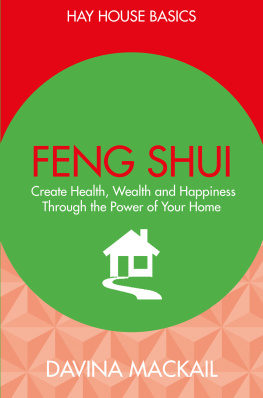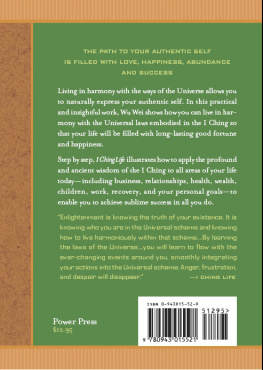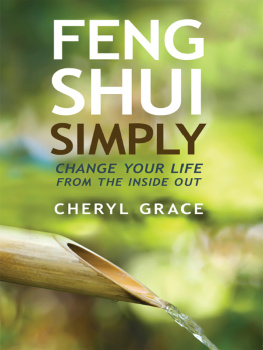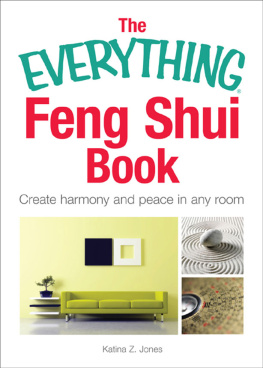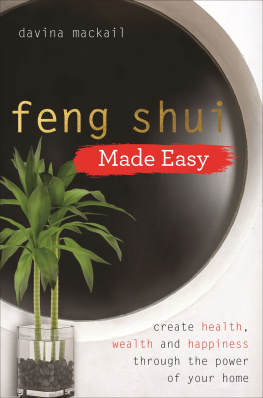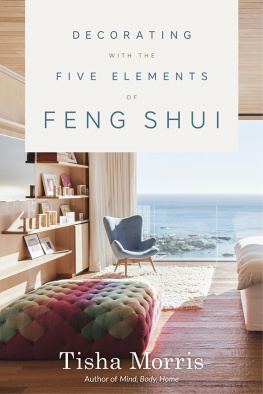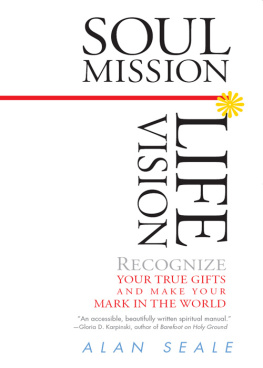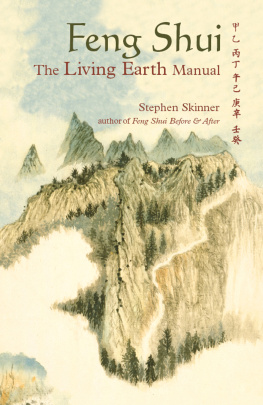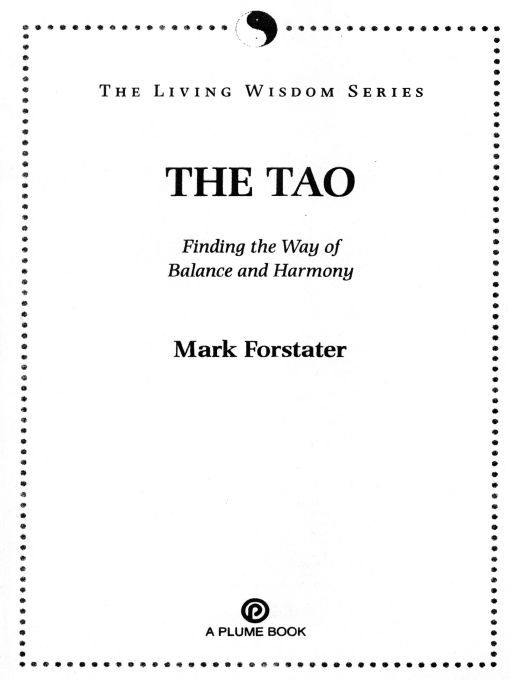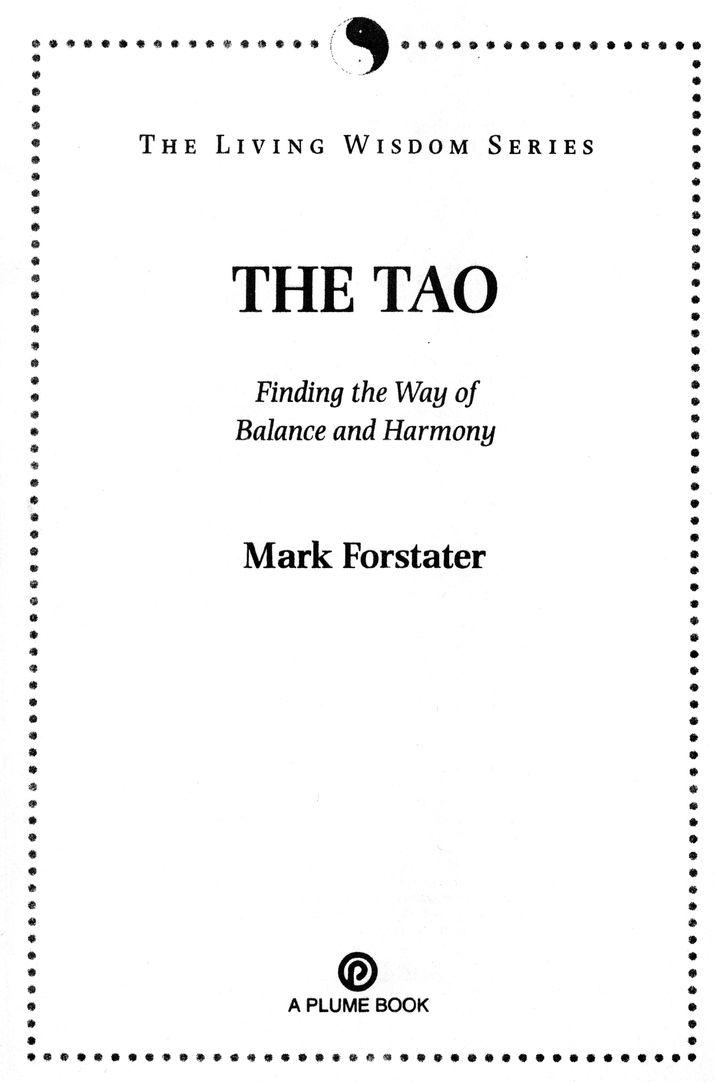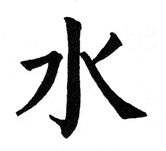Table of Contents
All will be well
With this simple guide, it is possible for anyone to follow the Way of the Tao in order to find profound balance and serenity. For thousands of years, the Way has allowed people to:
unite mind, body, and spirit
achieve the integration of self
enjoy a long and healthy life
have an awareness of our place in the universe
appreciate the wonder and beauty of nature
Discover a practice of self-cultivation that can reverse bad habits and establish a better way of living it can be found.
Mark Forstater is the author of Yoga Masters, the first book in the Living Wisdom series (available from Plume), as well as several books on spirituality and philosophy. An American producer with over twenty-five years of experience in film and television, he currently lives in London.
To all my daughters Maya, Asha, Cleo
Acknowledgements
The author would like to thank the following people for helping in the creation of this book and audiotape:
Rowena Webb, my editor at Hodder and Stoughton, who had the courage to commission this series.
Rupert Lancaster, Editor of Hodder Audio, for his support and help on the audio version.
My friends who read early drafts and gave valuable suggestions.
My agent Liv Blumer for all her help and support.
Mick Tomlinson of Rising Dragon Tai Chi for showing me how to use Tai Chi principles in life.
Alex de Kang Zheng for the Chinese calligraphy.
Faber and Faber for permission to quote from In Memory of W. B. Yeats from Collected Poems by W. H. Auden.
J. M. Dent, publishers, for allowing me to quote from Dylan Thomass poem, The Force That through the Green Fuse.
And finally my wife Jo who helped edit the Chuang Tzu texts and put up with all my nonsense.
In the deserts of the heart
Let the healing fountain start.
In the prison of his days
Teach the free man how to praise.
W.H AUDEN
The sound of rain needs no translation.
ROSHI MORIMOTO
Preface
uniting mind, body and spirit
the integration of self
enjoying a long and healthy life
having an awareness of our place in the universe
appreciating the beauty and wonder of nature
Attaining these states of being, and with them toexperience the sheer pleasure of existence, must be one of our greatest aims. No matter how difficult or even impossible it appears to attain such bliss, we have never stopped wanting to find a way to live a completely harmonious life.
Over 2,500 years ago Chinese thinkers found and explored a way of experiencing life that delivered just these benefits. They believed there was a Tao (pronounced dow), or Way of Nature, that permeated all of existence, and that it was possible for anyone to follow or imitate this Tao in order to find a profound balance and serenity in life.
The Tao of Nature they followed has unique and mysterious powers of transformation and change, so that anyone who finds life unsatisfactory can, by following this Tao, discover a practice of self-cultivation that reverses bad habits and establishes a new and better way of living.
Im not writing this book as an objective scholar of Chinese philosophy, but as someone who has tried, over the past few years, to put these Taoist ways into practice in daily life. Im a Tai Chi player, I meditate when I can find the time, and I try to live by the Taoist teachings. My aim in this book is to explain Taoism and to show how useful and effective it can be.
Taoism says that happiness is to be found in the here and now, in our mundane physical world, and not in an afterlife, or in a spiritual union with God. Because of this, it accepts the physical side of life, and has never lost a healthy and ecological view of nature. I believe that Taoism is a philosophy whose time has come, and it contains within its teachings the seeds for a regeneration of the Western mind and soul.
Part One of this book, The Art Of Living, introduces the subject, examines the concept of the Tao, and explains the relevance the Tao of Nature had for the ancient people who found it and lived it.
Part One also examines the relevance of the Tao for contemporary living, and explains why its teaching is a living philosophy that has not dated. It is used daily in the practices of Feng Shui, Tai Chi Chuan, acupuncture and traditional chinese medicine, which have gained wide acceptance and popularity in the West over the past fifty years.
Part Two, The Book Of Chuang Tzu, is a new version of the writings of the liveliest and wittiest of the Taoist philosophers, Chuang Tzu (whose name means Master Chuang), who lived in the fourth century BCE (before the Christian era). Chuang Tzus book, the oldest classic of philosophical Taoism, is a collection of parables, fables, anecdotes, jokes and dialogues that illuminates the Tao in an original and inventive style.
The Book of Chuang Tzu is best read in small chunks, perhaps before going to bed, or on the bus or train. It can be used as a spiritual tonic or as a guide to life. Ideally it shouldnt be read like a novel or a continuous work. Although Ive edited the text into sixteen thematic chapters and put them in a new order, theres no need to read the work in the order Ive given. You can dive in anywhere and appreciate Chuang Tzus humour and poetry.
PART ONE
The Art of Living
A Minor Dilemma
The Tao Te Ching (pronounced dow day jing), the ancient bible of philosophical Taoism, says,
The Tao that can be talked about is not the real Tao.
and
He who knows does not speak,
he who speaks does not know.
This makes it rather difficult for anyone to write a book about the Tao. If you presume to write about it, then, according to the Tao Te Ching, you cant be writing about the real Tao, and the very fact of your attempting to write about it already makes you suspect.
How can I get out of this dilemma, because I do want to write about the Tao and hope that what I write will be of some use in understanding this ancient and vibrant way of thinking and living? Perhaps Chuang Tzu, whose book I have edited and rewritten as Part Two of this work, can give me some advice. After all, Chuang Tzu and his followers wrote about the Tao to communicate their ideas and methods:
The world thinks the most valuable exhibition of Tao is found in its classic books. But books are only a collection of words. Words are valuable: what is valuable in them is the ideas they convey. But those ideas are a sequence of something else, and that something else cant be conveyed by words.


